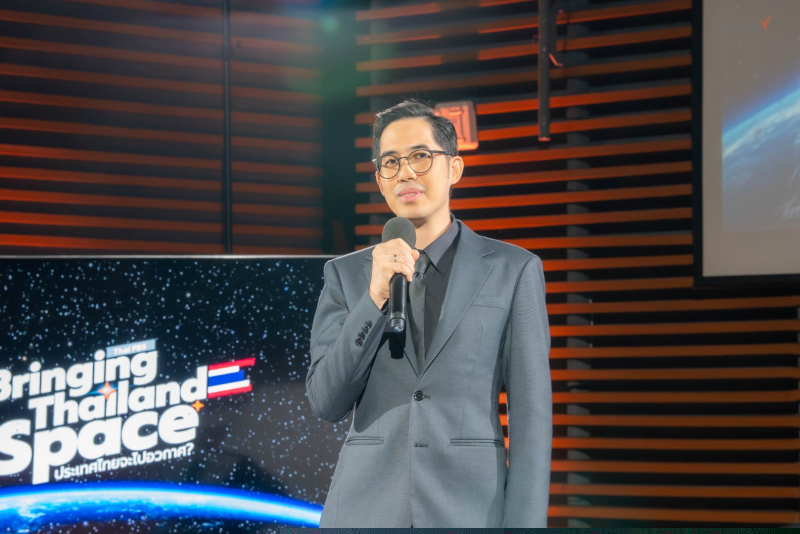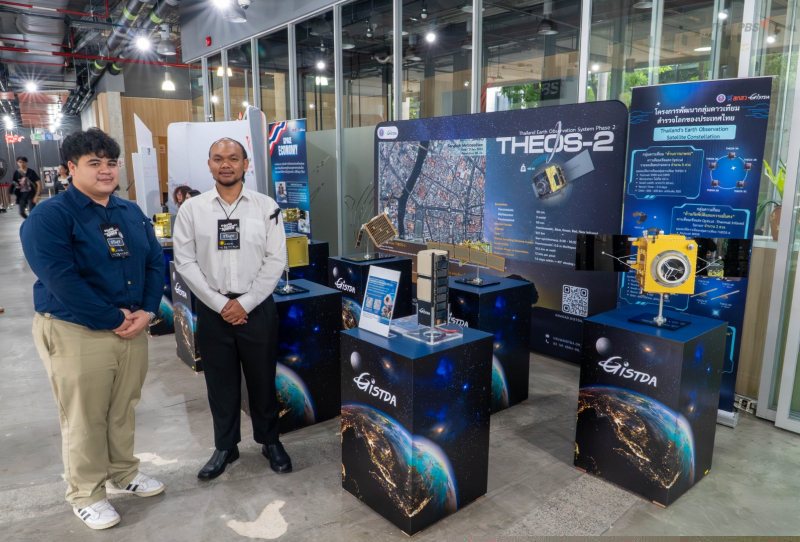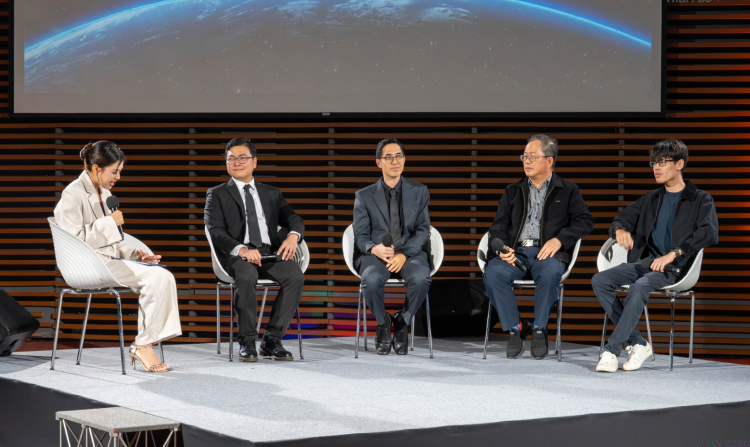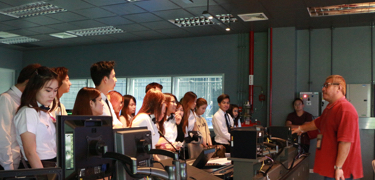As nations worldwide accelerate their space technology programs and compete for lunar and deep space exploration, Thailand is positioning itself to participate in this new frontier. On November 14th, 2025, Thai PBS World hosted a forum, bringing together the country's key space stakeholders to address a pivotal question: "Bringing Thailand to Space...Will Thailand Go to Space?"
The event brought together representatives from the National Astronomical Research Institute of Thailand (NARIT), the Geo-Informatics and Space Technology Development Agency (GISTDA), the National Science and Technology Development Agency (NSTDA) Space Education, JAXA and online space media platform Spaceth.co, along with related networks.
Fostering Cross-Sector Collaboration

In the opening remarks, Clare Patchimanon, Director of Thai PBS World, emphasised the broadcaster's commitment to creating platforms for knowledge exchange among agencies working on Thailand's space initiatives. "This collaboration reflects Thai PBS World's mission to present not only international news but also to connect Thailand to the world stage and promote the country's capabilities in science, technology and space," Patchimanon said.
Four Key Pillars of Thailand's Space Ambitions
The forum featured four showcase stages addressing critical aspects of space development:
Astronomy & Space Missions – Highlighting Thai contributions to international space projects
Space Education – Outlining pathways for students and professionals entering the space sector
Space Communication – Examining how the next generation engages with space technology
Space Economy – Exploring commercial opportunities in the space industry
Engineers, university professors, media professionals and representatives from the private sector presented Thailand's current developments. They discussed the support needed for sustained progress, including policy frameworks, budget allocation and educational foundations in science and technology.
Showcasing Thai Space Capabilities

NARIT presented several significant developments, including the MATCH experimental equipment - the first Thai-developed device scheduled for deployment on China's Chang'e-7 lunar mission in 2026. The institute's engineering team demonstrated space technology innovations, including an automatic centre of gravity adjustment system for satellite movement, and displayed the TSC-1 satellite developed by Thai engineers. NARIT also showcased its school planetarium project, which distributes miniature planetarium domes made from cardboard boxes to schools nationwide to promote astronomy education.


Dr. Natthawat Hongkarnjanakul, Space Innovation Development Expert, GISTDA
GISTDA exhibited models of more than eight Thai satellites, including the THEOS family of resource survey satellites currently in operation, as well as models of satellites developed entirely by Thai teams that are scheduled for launch in the coming years. GISTDA's satellite engineers explained how orbital data supports various applications, particularly flood monitoring and natural resource surveying.

Media's Role in Space Development

Natthanon Duangsungnoen, co-founder and managing editor of Spaceth.co, stressed the media's crucial role in raising public awareness and interest in space. "Space media in Thailand continues to grow, including podcasts, online programs and offline activities, reflecting a clear increase in interest in space," he noted.
Spaceth.co facilitated workshop sessions at the event, including "Zero-G Flight," examining experiments in weightless conditions, and "Space Journalism: How to Write Space News in the AI Era," featuring insights from new-generation media professionals.
A Platform for Sustainable Growth
This event marks the first time Thai PBS, as a public media service, has provided a comprehensive platform for Thailand's space sector, on which to share experiences and build networks. This initiative aligns with Thai PBS's ongoing support for organisations like GISTDA through consistent coverage of space-related developments.
The forum emphasised that advancing Thailand's space capabilities requires collaboration across the public, private and media sectors. By fostering these connections, the event aims to drive sustainable progress in Thailand's space industry, creating opportunities in education, economic development and national security.

